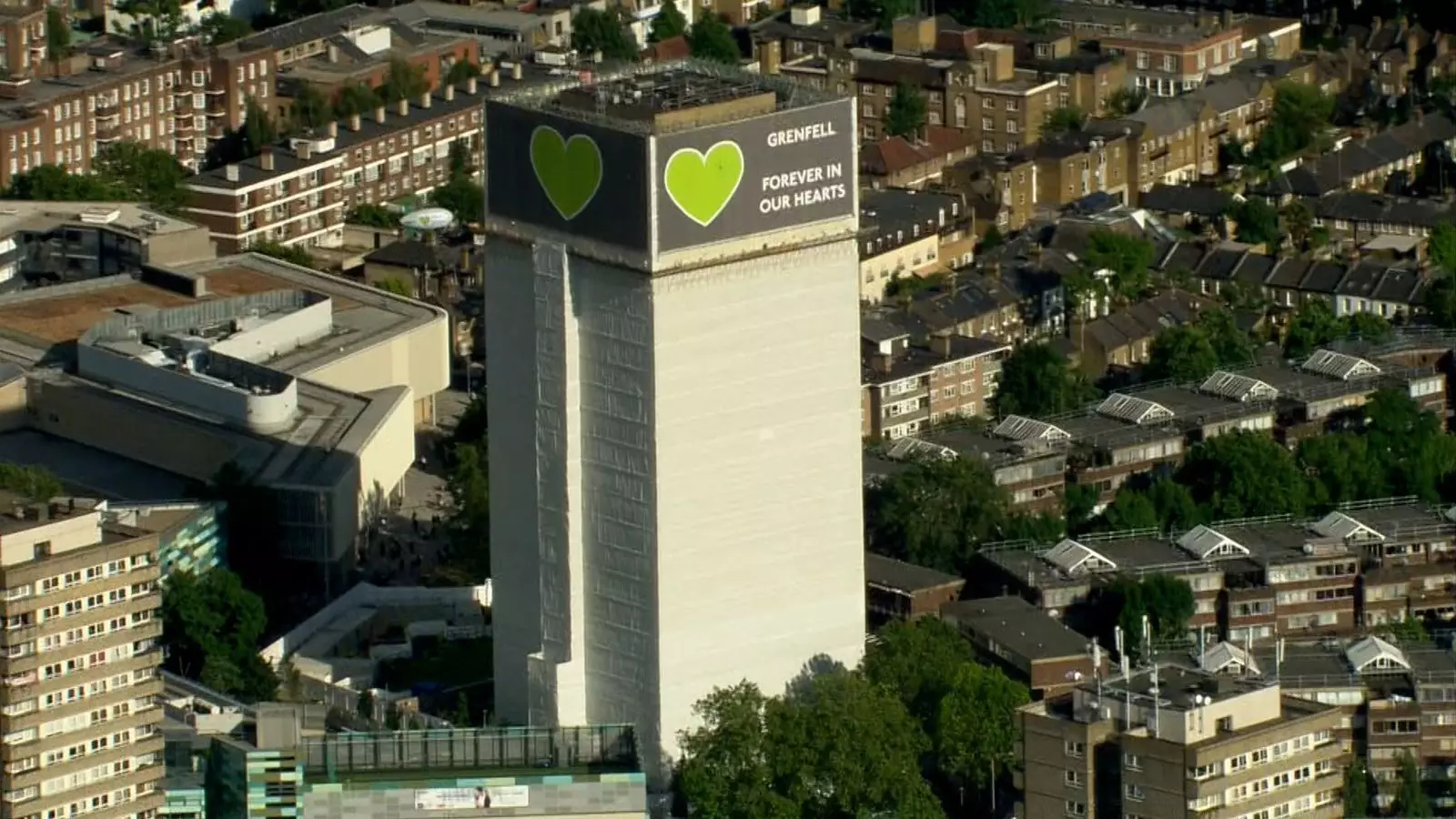The Grenfell Tower tragedy, which took 72 lives in one of the most devastating residential fires in UK history, haunts the collective memory of a nation. Nearly eight years after this catastrophic event, a decision has been made regarding the fate of the tower itself—a decision that has been met with fierce criticism from the community of bereaved families and survivors. Grenfell United, a prominent group representing those affected, has accused the government of sidelining their voices in the decision to demolish the building, viewing this act as a breach of trust and an affront to their memories. The chaotic emotional landscape surrounding the decision is an enduring reminder of the human cost of administrative actions, leaving many questioning the integrity of the consultation process.
Adding fuel to the fire of discontent, the Deputy Prime Minister Angela Rayner’s meetings with bereaved families were emblematic of a deeper communication breakdown. Families seeking closure became frustrated as Rayner appeared unable to provide transparent answers. The evident lack of clarity regarding how many voices were represented in the brief four-week consultation only exacerbated feelings of neglect. Attendees noted that the overwhelming sentiment among bereaved individuals present was against the demolition, directly contradicting the declaration that the decision was grounded in their opinions. This situation raises critical questions about how effectively policymakers engage with communities in distress. The impression left by Rayner’s statements signifies a troubling trend wherein the narratives of survivors are not just ignored; they are summarily dismissed.
Government officials have characterized the decision as a “deeply personal matter” for those affected, a phrase that resonates hollowly when juxtaposed with the tangible suffering experienced by families. Grenfell Next of Kin, yet another group advocating for the bereaved, articulated the pain stemming from the ongoing discussions regarding the tower. It is paramount to recognize that political decisions surrounding this tragedy are more than just bureaucratic processes—they become political statements about who matters in the societal dialogue about grief and memorialization. The observations made by Grenfell Next of Kin reflect a deeper yearning—the desire for a constructive conversation focused not just on demolition but on what can and should replace the tower, ensuring that the site of their loss becomes a place of remembrance rather than merely an unsightly reminder of past failures.
As discussions about the future of Grenfell Tower swirl in an atmosphere charged with emotional weight, there is a pressing need to shift the focus toward rebuilding lives and creating a meaningful legacy. Families have repeatedly voiced their desire for a collaborative effort to reimagine the site, transforming it into a space that honors the memories of those who were lost while fostering a sense of healing and community. Engaging the bereaved in this reimagining process is not just an ethical imperative but a moral one. The pain stemming from the tower’s continued existence demands attention, and a careful, thoughtful approach to rebuilding would serve as a potent antidote to the trauma still prevalent in the community.
While experts suggest that the building, though stable, is deteriorating, it is critical to note that their assessment is not merely a reflection on the physical structure but also on what it symbolizes—a flashpoint of injustice and neglect. The public inquiry that uncovered “systematic dishonesty” among authorities only serves to heighten the urgency of community-centered solutions to the challenges posed by Grenfell Tower. As criminal investigations into the fire continue, with decisions on charges expected far into the future, a vigilant community awaits answers, closure, and the restoration of dignity.
Ultimately, policies affecting the bereaved must gravitate more towards dialogue and understanding rather than directive stances. The voices of those impacted must remain at the forefront of decision-making processes, ensuring that the tragedy’s echoes are met with compassion and respect moving forward. Only then can we hope to transform pain into purpose and loss into a lasting legacy.


Leave a Reply